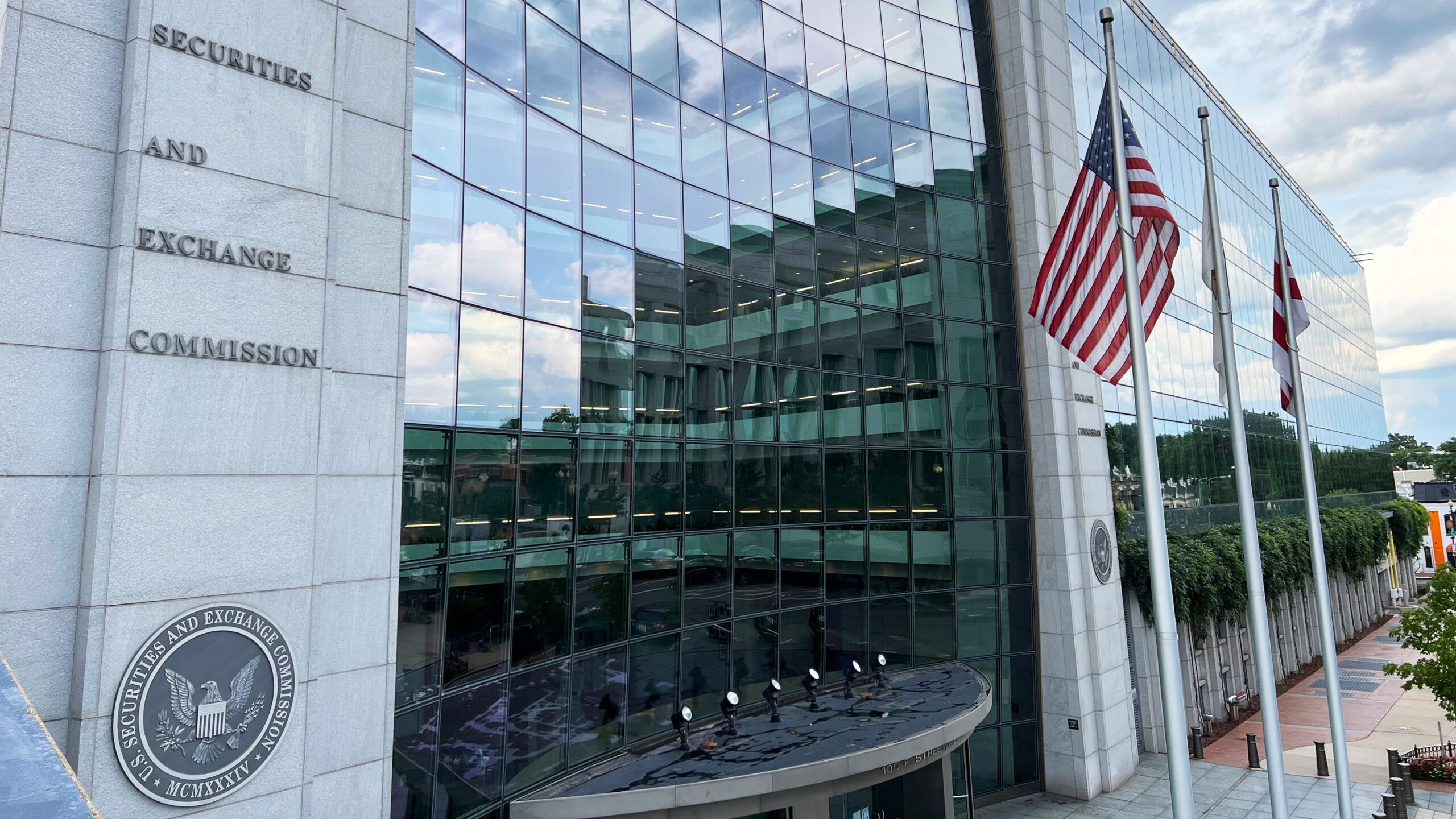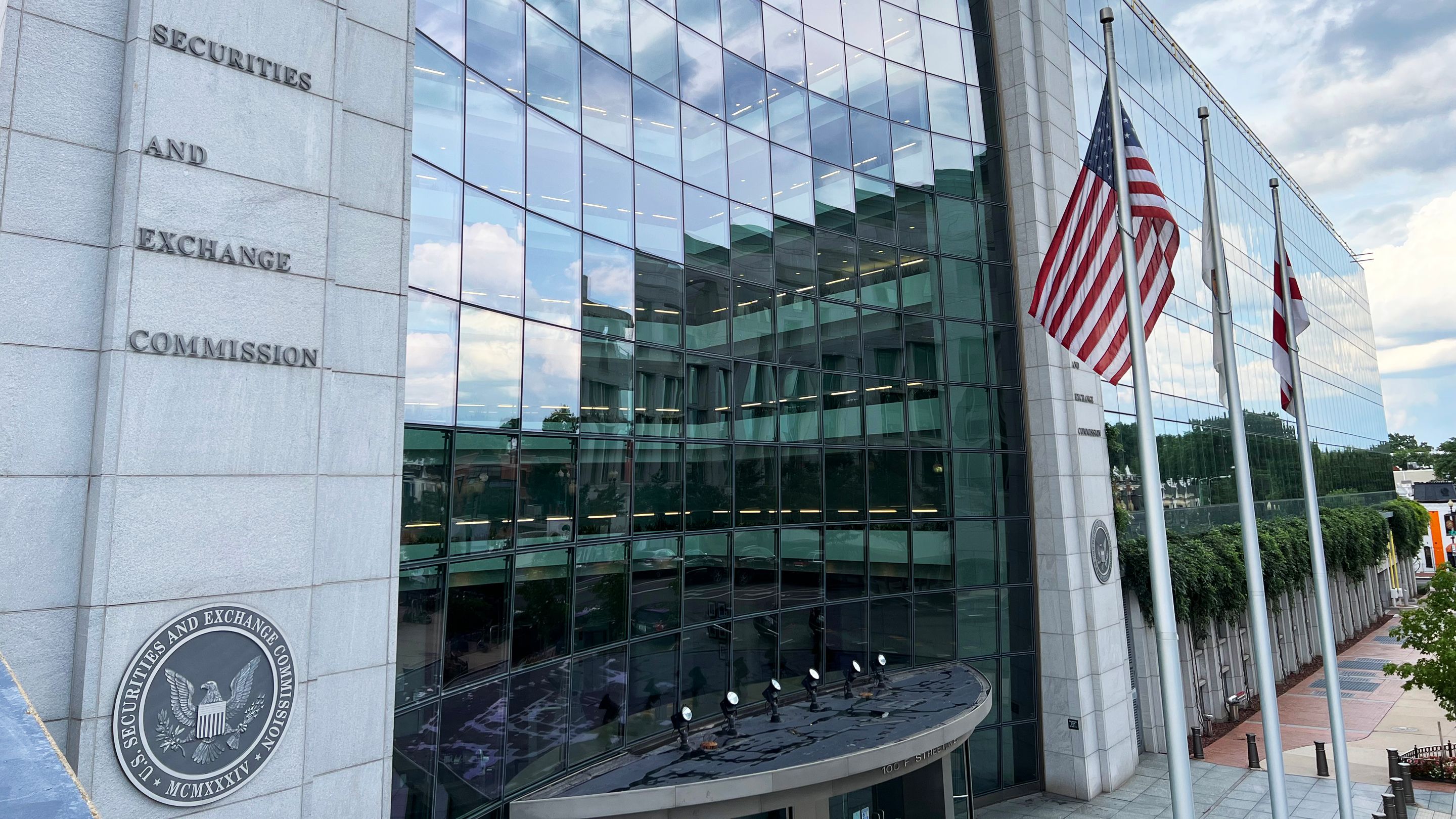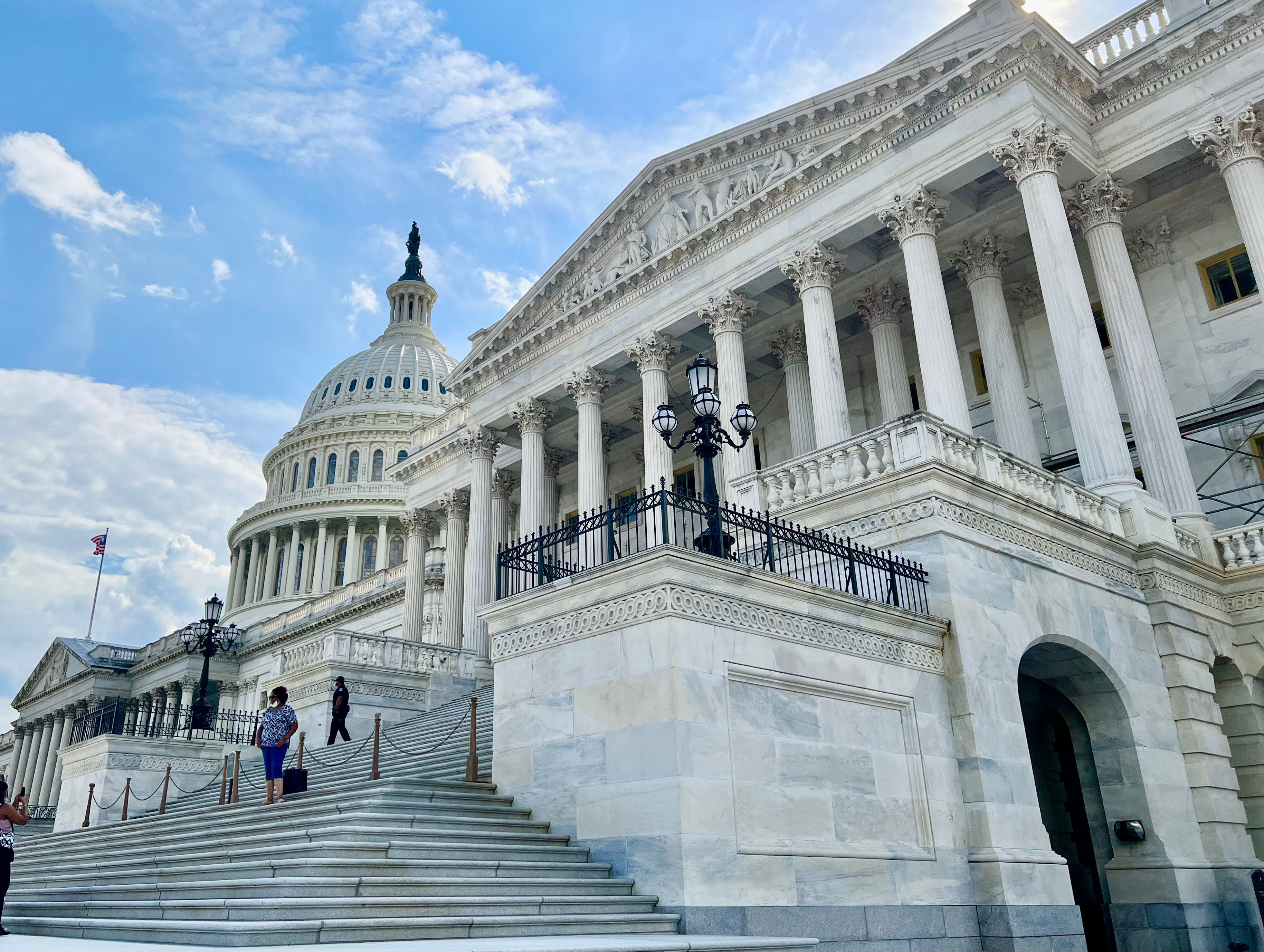Blockchain Association
U.S. Crypto Lobbyists Flooding the Zone, But Are There Too Many?
Published
2 weeks agoon
By
admin

Crypto’s moment has seemingly arrived in Washington, D.C., and the industry is trying to make the most of it. But as new organizations hatch and leadership shifts at the top advocacy operations, the field of pro-crypto groups trying to carry the torch is more crowded than ever.
No fewer than a dozen groups — including the Digital Chamber, Blockchain Association and Crypto Council for Innovation — are seeking to steer digital assets policies in the U.S., some of them substantially overlapping in their membership bases, funding sources and in the goals they’re seeking to accomplish.
Most of the leaders of those groups told CoinDesk they have a more-the-merrier view on pushing for friendly policy from President Donald Trump’s highly receptive administration and from Congress, which is increasingly loaded with industry allies.
“Many of the objectives are consistent across these groups,” said Miller Whitehouse-Levine, who recently left the DeFi Education Fund to launch the new Solana Policy Institute. “That’s a good thing, because I think there’s an absolute torrent of legislative and regulatory work that’s going on right now, and we need all the help we could get.”
Congress is chasing several crypto bills, including legislation to set boundaries for crypto markets, oversee stablecoin issuers, curtail digital assets in illicit financing, call for proof of reserves at crypto firms and set up government digital reserves. “We would have 100 more groups and 10,000 more people working on these issues in an ideal world,” Whitehouse-Levine added.
But other current and former policy advocates privately grant that the field is getting packed and that it can be difficult to justify so many entities pulling for the same cause with the same finite universe of congressional staff, White House offices and regulatory officials. In the recent past, groups have talked about reorganization and consolidation, according to people familiar with the discussions, though such efforts haven’t been executed.
Meanwhile, new organizations have hung their shingles in recent weeks, including Whitehouse-Levine’s SPI and the National Cryptocurrency Association, further increasing the ranks. That’s often how the numbers have grown in Washington: A company or lobbyist who feels some specific interest isn’t properly represented and can figure out how to pay for it. And big crypto firms have also set up their own D.C. operations, pushing for their more highly tailored interests.
New leaders
Cody Carbone is still just days into his leadership of the Digital Chamber — the oldest and largest crypto membership group. The Chamber and virtually every other major digital assets organization has lost or swapped leaders in the opening months of this year — many of them in the past few weeks.
He said he understands why so many are suddenly keen on showing up in Washington to take advantage of the turn in crypto sentiment, and he sees this crowded field of U.S. groups as a net positive when there is so much work to go around getting complex legislation done.
“At some point, there could be too many cooks in the kitchen,” he said. “But I think that’s a problem for a later day.”
Sheila Warren, who recently stepped away as the chief of CCI, said “there’s definitely room for differentiation” in crypto’s growing army of boosters, but she said a united front — in whatever form — is key.
“I think it’s really about coming together and recognizing that we all pretty much want the same things,” she said.
Not all of the groups share the same agendas. Some focus on narrow areas of the industry, and a few are more oriented toward research or serving crypto users rather than companies. Their ranks include Coin Center, Satoshi Action Fund, Bitcoin Policy Institute, Government Blockchain Association and Bitcoin Mining Council. Ripple started the new NCA with an astounding $50 million commitment, and it’s meant to be one of those more interested in the people who use and invest in crypto than the industry players.
Politics
On the raw, political edge of advocacy, the industry — especially U.S. exchange Coinbase — has entered the arena. Coinbase set up Stand With Crypto in an effort to jump-start a grass-roots-style crypto movement. That message-of-the-people strategy was bolstered by the extremely well-funded political action committee Fairshake and the dark-money influence arm, Cedar Innovation Foundation.
Fairshake spent more than a hundred million dollars to put friendly lawmakers into congressional seats last year, and the industry is already seeing big, bipartisan support in the early days of the new session. One point of evidence: The Democrats came out in force to join Republicans in killing an Internal Revenue Service rule that could have made existence-threatening demands on decentralized finance (DeFi) projects.
“I think it’s a huge benefit that we have so many organizations dedicated to trying to achieve regulatory clarity for digital assets,” said Amanda Tuminelli, who stepped up to run the DeFi Education Fund when Whitehouse-Levine left. “I think it’s been really needed, especially in the past few years, and when we work together, we actually accomplish great outcomes. For example, the IRS broker rule on DeFi.”
As it tackles those major questions on tax, government crypto reserves, the structure of the markets and regulations of stablecoins, the crypto lobbying space is leaping into a new chapter. That transition is made even more stark with the sudden and dramatic shuffle of leadership.
Kristin Smith, who was the chief of one of the leading groups, left the Blockchain Association to go work for former underling Whitehouse-Levine as president of his new Solana organization. So the association is left shopping for a new CEO. Meanwhile, the founder and longtime leader of the Digital Chamber, Perianne Boring, exited that job for unpaid work leading the board, and the founder of crypto think tank Coin Center similarly departed.
In Warren’s absence at CCI, Ji Kim — the group’s former general counsel and head of global policy — told CoinDesk he remains “laser-focused on ensuring that CCI continues to be the leading, substantive and global voice for our members on key policy issues.” When asked about the potential of organization mergers, he said he had “nothing to say” on that point.
The lobbyists and advocates have routinely come together on letters, events and papers pushing their common aims.
Carbone said there’s “definitely friendliness and conversations between us,” though he said there “needs to be more collaboration.”
However, the groups have practical needs for funding and members, and they’re driven to secure members who can sometimes only afford to join one or two of them.
“There’s obviously a competitiveness angle to this as well,” Carbone acknowledged. “It would be naive to say there’s not, so there’s a race sometimes.”
Source link
You may like


Ethereum community members propose new fee structure for the app layer


Crypto Investors Sue Nike, Accuse Apparel Giant of Rug Pull After Abrupt Closure of Metaverse Business: Report


Top cryptocurrencies to watch: Pi Network, XRP, Sui


This Week in Crypto Games: Ubisoft’s ‘Might & Magic’, ‘Peaky Blinders’ in Development


Why Arbitrum-Nvidia Partnership Collapsed – And What It Means for Web3


Tariff Carnage Starting to Fulfill BTC’s ‘Store of Value’ Promise
Blockchain Association
U.S. SEC Backs Off Crypto Dealer Fight, Continues Resetting Industry Approach
Published
2 months agoon
February 20, 2025By
admin

Already losing its legal fight with the crypto industry over a rule that would have expanded the definition of regulated securities dealers to include a wide array of digital assets operations, the U.S. Securities and Exchange Commission has given up its appeal.
The SEC has been in reset mode on its courtroom entanglements with crypto issues as the leadership elevated by President Donald Trump has been reversing years of the agency’s adversarial stance. The latest move was to formally drop the appeal in a case in which the Blockchain Association and Crypto Freedom Alliance of Texas sued the SEC and a Texas federal judge agreed that the regulator “exceeded its statutory authority.”
“With new leadership at the agency leading to today’s final dismissal, we’re looking forward to productive conversations between industry and the SEC moving forward – and a brighter future for digital assets in the United States,” said Blockchain Association CEO Kristin Smith, in a statement.
The rewritten dealer rule was one of the agency’s major efforts at crypto rulemaking under the tenure of former chairman Gary Gensler, and it was crafted with the agency’s longtime stance in mind that existing laws were sufficient to handle the oversight of the digital assets space. The industry’s position was that the rule made untenable demands on decentralized finance (DeFi) and also roped in crypto traders who didn’t offer dealer services.
The agency didn’t immediately respond to a request for comment on the legal withdrawal.
Since being installed as the SEC’s acting chairman, Mark Uyeda, has begun to aggressively overhaul the agency’s senior staff and its legal approach to the crypto sector. He’s set to be replaced whenever Trump’s permanent pick, Paul Atkins, can be confirmed by the U.S. Senate, though Atkins is expected to continue in the same path.
Earlier this month, the SEC also sought to pause its enforcement fight with Binance over the agency’s accusations of securities violations so the matter could be resolved in another way.
Read More: U.S. SEC Loses Crypto Lawsuit Over ‘Dealer’ Definition That Pushed Into Crypto
Source link
Banking
U.S. Congressional Republicans in Hot Pursuit of Biden-Era’s Crypto Debanking
Published
3 months agoon
January 26, 2025By
admin
An investigation in the U.S. House of Representatives and a hearing in the Senate will examine whether financial regulators during the administration of former President Joe Biden deliberately cut off crypto industry leaders and others from the banking system in an inappropriate use of authority.
“Debanking is un-American — every legal business deserves to be treated the same regardless of their political beliefs,” said Senate Banking Committee Chair Tim Scott, a South Carolina Republican who took over the gavel earlier this month and has scheduled a February 5 hearing on debanking. “Unfortunately, under Operation Chokepoint 2.0, Biden regulators abused their power and forced financial institutions to cut off services to digital asset firms, political figures, and conservative-aligned businesses and individuals.”
Operation Chokepoint 2.0 is the name Republican lawmakers and the digital assets industry have been using for the systemic severing of crypto insiders from U.S. banks, in reference to an earlier era’s Operation Chokepoint — a government-sanctioned effort to reduce risk in banking by encouraging the lenders to back away from legal but otherwise risky businesses.
Delving into the struggle of crypto executives and businesses to maintain banking relationships, the House Oversight Committee is “investigating whether this debanking practice originates from the financial institutions themselves or from either implicit or explicit pressure from government regulators,” according to a letter the committee chairman, Representative James Comer, sent on Friday to founders and CEOs of several crypto companies and organizations, including Coinbase, Lightswap and Uniswap Labs.
The challenge of pinning the lack of banking options entirely on the government is that some financial institutions may have made decisions based on their own risk appetites or business plans that deliberately steered clear of crypto interests. And banking regulators such as the Federal Deposit Insurance Corp. and the Office of the Comptroller of the Currency were public in their guidance that regulated banks seeking to do crypto business would face restrictions and additional scrutiny from the agencies.
However, a Coinbase pursuit of private FDIC communications with banks demonstrated that the agency directed them to stop pursuing digital assets services until the regulator had specific rules in place, which it wasn’t developing.
“We are grateful to assist in the thorough investigation of this pernicious practice,” said Kristin Smith, CEO of the Blockchain Association, which also received the House committee’s letter probing the trend.
Meanwhile, congressional Democrats have been focusing their own investigation requests on President Donald Trump’s recently launched meme coin, $TRUMP. He’s been accused of using the presidency to rack up billions of dollars, and they cite the token as a potential risk for dangerous conflicts of interest.
The House Financial Services Committee announced a hearing on the issue late Friday, scheduled for Thursday, Feb. 6.
UPDATE (Jan. 24, 2024, 21:25 UTC): Adds House hearing.
Source link
Dogecoin Confirms Daily Trend Reversal With Breakout, Retest, And New Uptrend

Ethereum community members propose new fee structure for the app layer

Crypto Investors Sue Nike, Accuse Apparel Giant of Rug Pull After Abrupt Closure of Metaverse Business: Report

Top cryptocurrencies to watch: Pi Network, XRP, Sui

This Week in Crypto Games: Ubisoft’s ‘Might & Magic’, ‘Peaky Blinders’ in Development

Why Arbitrum-Nvidia Partnership Collapsed – And What It Means for Web3

Tariff Carnage Starting to Fulfill BTC’s ‘Store of Value’ Promise

The cost of innovation — Regulations are Web3’s greatest asset

Best Crypto to Buy as Derivatives Exchange CME Set to Launch XRP Futures

Metaplanet Buys Additional ¥1.92 Billion Worth Of Bitcoin

Here Are Four Signs the Stock Market Has Bottomed, According to Fundstrat’s Tom Lee

Bitcoin dips below $94,000 as ETFs record $3b weekly inflow

Bitcoin Post-Halving Price Performance Is the Worst on Record. Why?

Expert Predicts Start Date For Pi Network Price Pump

GameFi Tokens Show Signs of Life After Gala Games, White House Tie-Up

Arthur Hayes, Murad’s Prediction For Meme Coins, AI & DeFi Coins For 2025

Expert Sees Bitcoin Dipping To $50K While Bullish Signs Persist

3 Voting Polls Show Why Ripple’s XRP Price Could Hit $10 Soon

Aptos Leverages Chainlink To Enhance Scalability and Data Access

Bitcoin Could Rally to $80,000 on the Eve of US Elections

Crypto’s Big Trump Gamble Is Risky

Institutional Investors Go All In on Crypto as 57% Plan to Boost Allocations as Bull Run Heats Up, Sygnum Survey Reveals

The Future of Bitcoin: Scaling, Institutional Adoption, and Strategic Reserves with Rich Rines

Sonic Now ‘Golden Standard’ of Layer-2s After Scaling Transactions to 16,000+ per Second, Says Andre Cronje

Ripple-SEC Case Ends, But These 3 Rivals Could Jump 500x

Has The Bitcoin Price Already Peaked?

A16z-backed Espresso announces mainnet launch of core product

Xmas Altcoin Rally Insights by BNM Agent I

Blockchain groups challenge new broker reporting rule

I’m Grateful for Trump’s Embrace of Bitcoin
Trending

 24/7 Cryptocurrency News6 months ago
24/7 Cryptocurrency News6 months agoArthur Hayes, Murad’s Prediction For Meme Coins, AI & DeFi Coins For 2025

 Bitcoin3 months ago
Bitcoin3 months agoExpert Sees Bitcoin Dipping To $50K While Bullish Signs Persist

 Ripple Price1 month ago
Ripple Price1 month ago3 Voting Polls Show Why Ripple’s XRP Price Could Hit $10 Soon

 24/7 Cryptocurrency News4 months ago
24/7 Cryptocurrency News4 months agoAptos Leverages Chainlink To Enhance Scalability and Data Access

 Bitcoin6 months ago
Bitcoin6 months agoBitcoin Could Rally to $80,000 on the Eve of US Elections

 Opinion6 months ago
Opinion6 months agoCrypto’s Big Trump Gamble Is Risky

 Bitcoin5 months ago
Bitcoin5 months agoInstitutional Investors Go All In on Crypto as 57% Plan to Boost Allocations as Bull Run Heats Up, Sygnum Survey Reveals

 Bitcoin2 months ago
Bitcoin2 months agoThe Future of Bitcoin: Scaling, Institutional Adoption, and Strategic Reserves with Rich Rines


